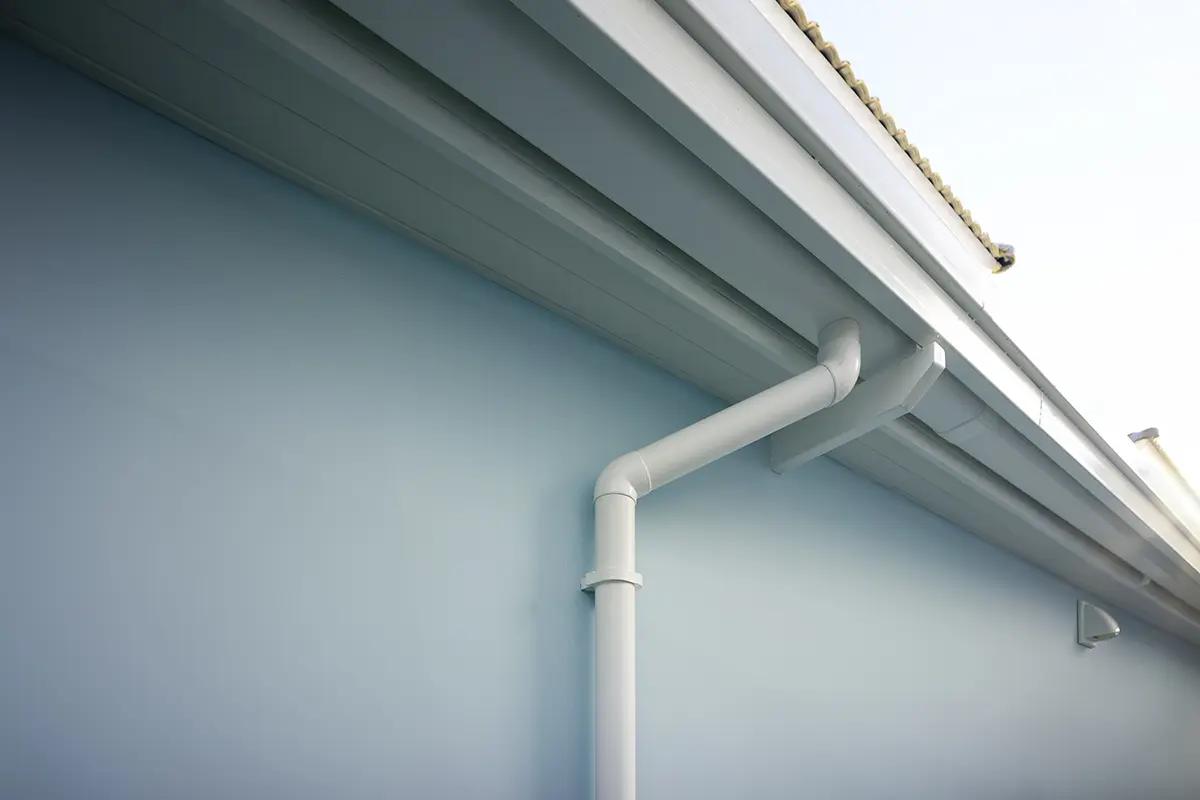What is the Best Type of Guttering?
Choosing the right type of guttering for your home can significantly impact its protection and aesthetic appeal. With a myriad of options available, understanding the pros and cons of each type is crucial. This guide will delve into the most common guttering materials, their characteristics, and factors to consider when making your selection.
Understanding the Importance of Gutters
Before diving into the specifics of different guttering types, it’s essential to grasp the critical role gutters play in safeguarding your property. Gutters channel rainwater away from your home’s foundation, preventing erosion, basement flooding, and structural damage. They also protect exterior walls, landscaping, and walkways from water damage.
Common Guttering Materials
Aluminum Gutters:
- Pros: Lightweight, durable, corrosion-resistant, affordable, and available in various colours.
- Cons: Prone to denting and sagging over time, especially in heavy snow or ice conditions.
- Best for: Most residential homes, particularly those with moderate climates.
PVC Gutters:
- Pros: Inexpensive, lightweight, easy to install, and available in a wide range of colours.
- Cons: Less durable than metal options, prone to cracking in extreme temperatures, and may not be suitable for heavy rainfall areas.
- Best for: Budget-conscious homeowners in regions with mild climates.
Steel Gutters:
- Pros: Extremely durable, resistant to dents and corrosion, and can withstand heavy loads.
- Cons: More expensive than aluminium or PVC, susceptible to rust if not properly coated, and heavier to install.
- Best for: Areas with heavy rainfall or snowfall, commercial buildings, and homeowners seeking a long-lasting solution.
Copper Gutters:
- Pros: Exceptional durability, beautiful appearance that develops a patina over time, and high resale value.
- Cons: Most expensive option, requires regular cleaning to maintain appearance, and prone to sagging if not properly installed.
- Best for: High-end homes, historic properties, or homeowners who prioritise aesthetics and longevity.
Cast Iron Gutters:
- Pros: Timeless elegance, exceptional durability, and can withstand heavy loads.
- Cons: Extremely heavy, expensive, and prone to cracking if damaged.
- Best for: Historic restoration projects or homeowners seeking a truly unique look.
Factors to Consider When Choosing Gutters
- Climate: Consider your region’s weather patterns. Areas with heavy rainfall or snowfall require more durable materials like steel or copper.
- Budget: Determine your budget to narrow down your options. PVC or aluminium are generally more affordable, while copper and cast iron are premium choices.
- Home Style: The gutter material should complement your home’s architectural style. Copper and cast iron often suit historic homes, while aluminium and PVC are versatile options.
- Maintenance: Factor in the time and effort required for gutter maintenance. Aluminium and PVC are generally low-maintenance, while copper and cast iron may need more attention.
- Installation: Consider the complexity of the installation process. PVC and aluminium are typically easier to install, while steel, copper, and cast iron may require professional expertise.
Additional Considerations
- Gutter Size: The size of your gutters should be adequate to handle your region’s rainfall. Larger gutters are necessary for areas with heavy precipitation.
- Gutter Guards: Investing in gutter guards can help prevent clogs and reduce maintenance.
- Professional Installation: Proper installation is crucial for optimal performance and longevity.
Conclusion
Selecting the best type of guttering involves careful consideration of various factors. By understanding the strengths and weaknesses of different materials and considering your specific needs, you can make an informed decision that protects your home and enhances its curb appeal.
For more information on the best Type of Guttering contact Associates Roofing Partnership.
